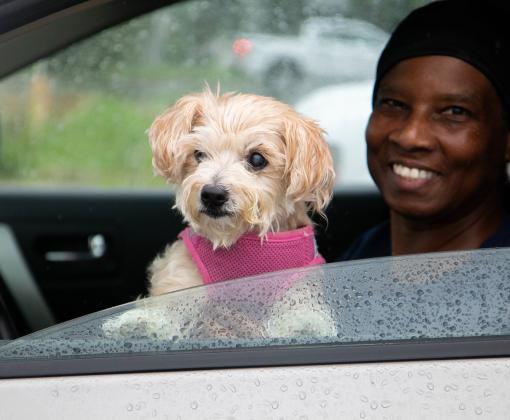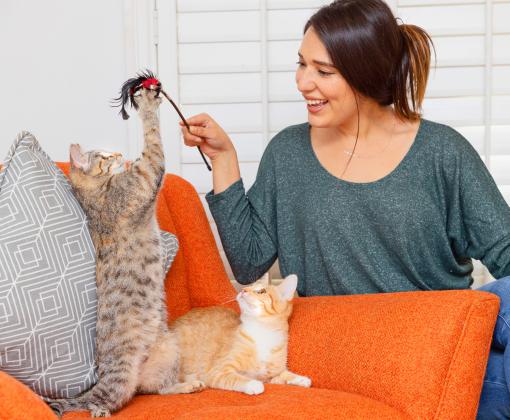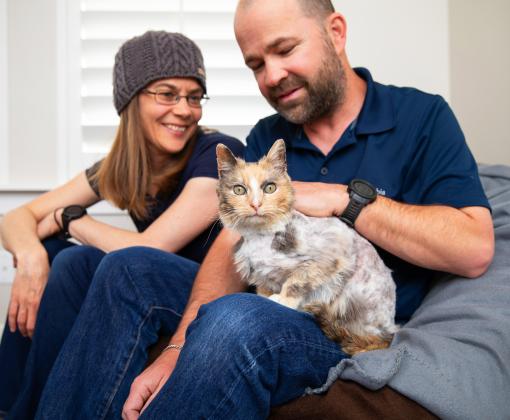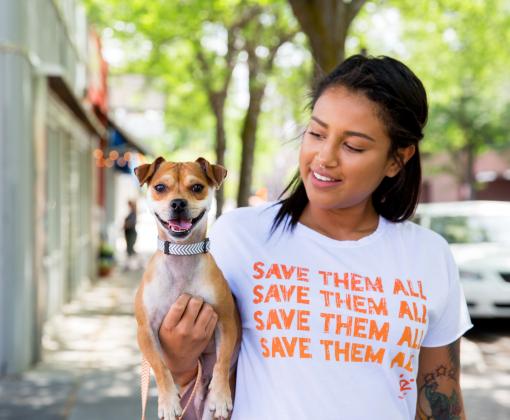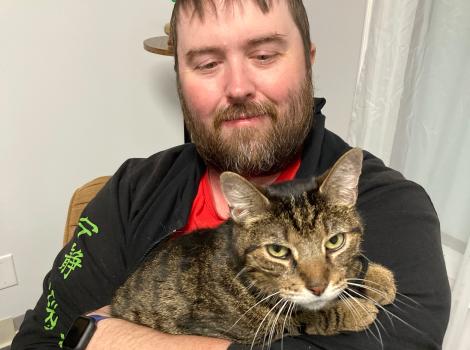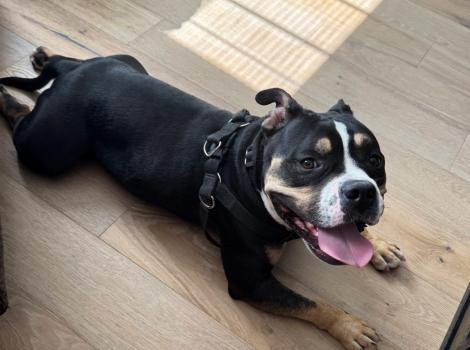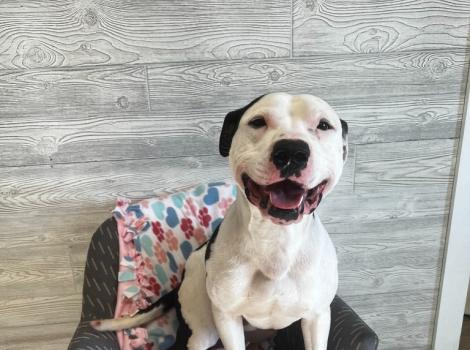Affordable vet care helps Louisiana pets
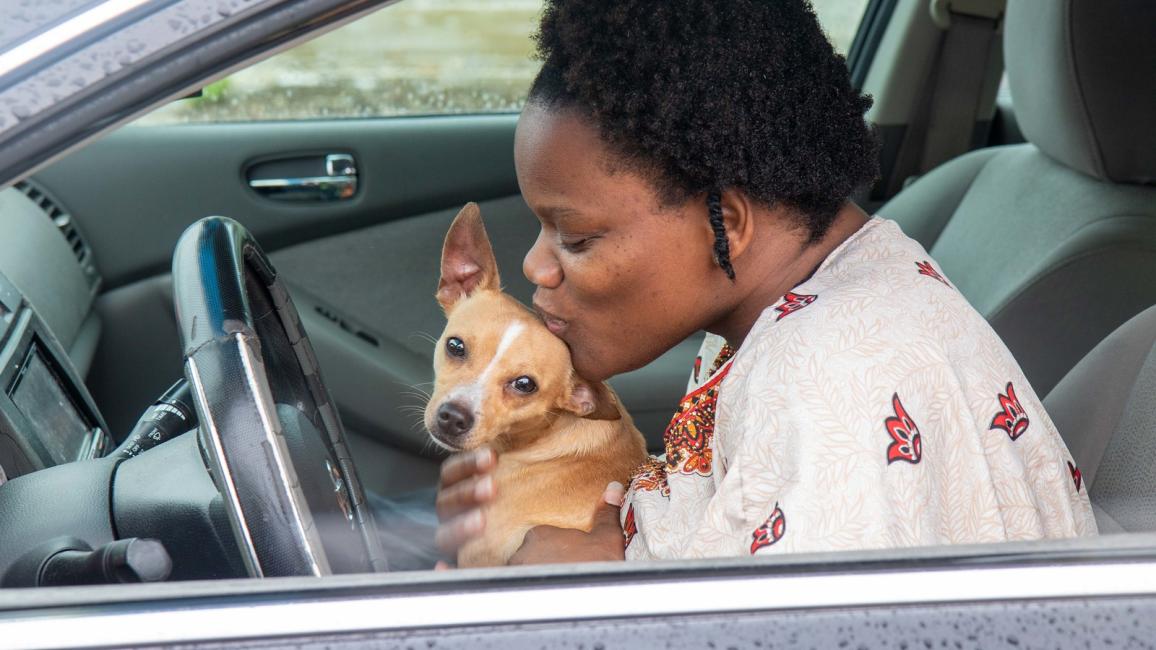
When asked about the biggest difficulties of doing lifesaving work in Louisiana, Best Friends South Central Regional Strategist Louiza Chan is straightforward:
“Access to veterinary care, access to veterinary care, and access to veterinary care.”
This statement is not surprising if you look at the numbers for the state. According to the U.S. Census Bureau, Louisiana consistently has one of the highest poverty rates in the country (19.4%, compared to the national average of about 11.6%). It’s also true that where people are vulnerable, so are their pets.
Our goal at Best Friends is for every shelter in the United States to reach no-kill in 2025. Supporting shelters by awarding them funds, like Rachael Ray Save Them All Grants from The Rachael Ray Foundation, is one way we’re helping shelters and the pets and families they serve. The Rachael Ray Foundation is a private foundation that is fully funded by the proceeds from the sale of Rachael Ray™ Nutrish® dog food. The foundation was launched by Rachael Ray in 2016 to better support the causes she cares for most, such as helping animals in need.
While pet adoptions, foster programs, and community cat programs are essential parts of this process, another crucial piece is supporting organizations that focus on keeping pets out of shelters and in their homes. These are programs that offer assistance to families, so they don’t have to surrender their pets to a shelter to begin with.
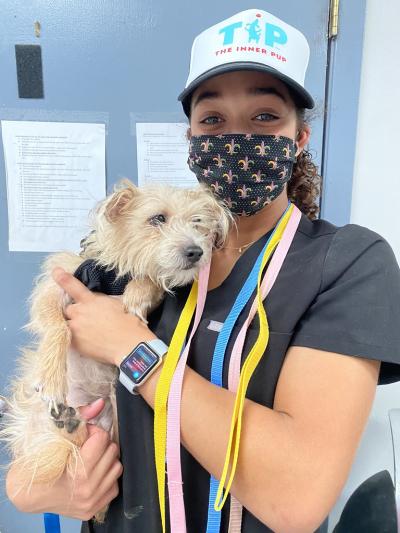
Low-cost veterinary care for pets
That is exactly what The Inner Pup (TIP) does. Founded in 2014 by mother-daughter duo Genie and Lindsay Goldring, TIP provides people in New Orleans and surrounding areas access to low-cost veterinary services for their pets. Through a partnership with Louisiana State University’s veterinary school in Baton Rouge, TIP has 20 rotating veterinarians at its monthly clinic, plus the ability to send clients to local veterinary clinics through its veterinary assistance program. Whether it be for low-cost spay/neuter surgeries or more complicated emergency procedures, TIP does whatever it takes to keep families and their pets together.
TIP Operations Manager Mari Nerbovig explains, “We’re here to support people because we know it looks different for every single pet owner, and if we find solutions together, those are going to be much more enduring and work for the community as a whole.”
[Changing life for pets and people in west Texas]
The grant was given to support intake diversion (assistance to families as an alternative to surrendering their pets) at a shelter in the Greater New Orleans area, as a way to reduce the burden on the already crowded and under-resourced shelter.
Khloe is one pet helped by the grant. Her family reached out to The Inner Pup when Khloe was hit by a car and needed surgery on her leg. Without the means to cover the veterinary expenses, Khloe’s family faced an impossible choice: a surgery they couldn’t afford or surrendering their beloved pet to the shelter.
Thanks to the Rachael Ray Save Them All Grant, The Inner Pup was able to come to their aid, fully covering the cost of Khloe’s surgery. Now Khloe is healthy and happy again, and her leg has fully healed. But more importantly, she is home with her family — right where she belongs.
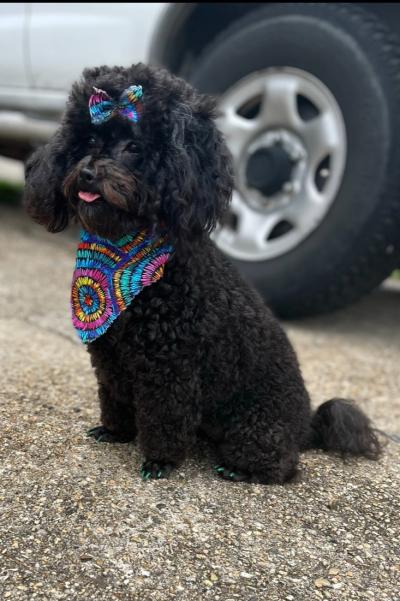
A community-centric approach
The Inner Pup is successful at what they do because they prioritize building solid relationships and trust within their community and really listening to their needs. According to Mari, “TIP provides low-cost, low-barrier vet solutions, but we also have volunteer case managers since not everyone can hop online and fill out an application. We know not everyone's got transportation, so we really do our best to bridge the gap for folks.”
Another part of their work is disease prevention. One of their most popular programs is a pop-up heartworm prevention clinic, which occurs monthly in different neighborhoods in New Orleans, seeing 100 to 150 animals every month. This work is near and dear to Lindsay and Genie, who have seen far too many animals succumb to what is a preventable disease for those who have easy access to veterinary care.
However, many people who have low incomes don’t always have the option to bring their pets to a veterinarian regularly or to get the prescription heartworm prevention medication. In this instance, The Inner Pup is their only resource.
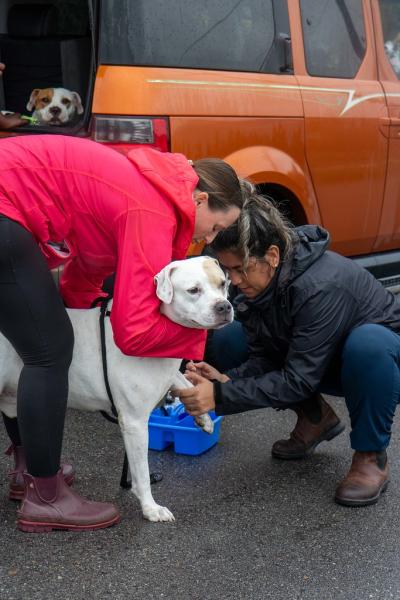
Low in funds, rich in love
Despite increasing the number of pets they can see in their clinics, The Inner Pup faces daily obstacles. “The challenges we encounter are all symptomatic of the fact that we are working with a community that's underserved and under-resourced, so they require a lot more support through all of our processes,” says Mari.
Genie sums it up like this: “Our biggest challenge is the challenge of poverty.”
They do what they can, making themselves present and available for people. It means a lot to each of them, personally as well. To Mari, it’s about providing relief to the community. “Despite the issues they face, these are people who still deserve joy and happiness in their life. By helping them keep their pets, we're able to support them in a very difficult world to find some source of happiness.”
[Grant helps save more dogs in Chicago shelters]
To Lindsay, it’s about connection. “I just absolutely adore dogs, and I really love facilitating better connections between pets and their people.”
Finally, to Genie, it’s simply about love: “Our work helps our clients impart value to their pets and feel comfortable with showering them with love and not hearing ‘Oh, it's only a dog, or it's only a cat.’”
“There's a mutuality of love in what we do,” adds Genie.
A love that is clearly felt by their community members and their pets. Through a testimonial, a former client whose dog was saved thanks to The Inner Pup sums it up best:
“I call y’all angels on Earth.”
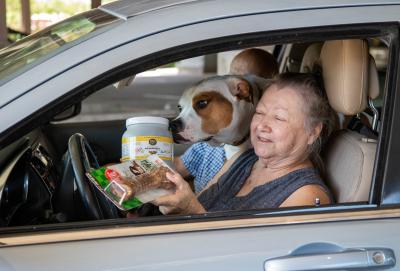
Let's make every shelter and every community no-kill in 2025
Our goal at Best Friends is to support all animal shelters in the U.S. in reaching no-kill in 2025. No-kill means saving every dog and cat in a shelter who can be saved, accounting for community safety and good quality of life for pets.
Shelter staff can’t do it alone. Saving animals in shelters is everyone’s responsibility, and it takes support and participation from the community. No-kill is possible when we work together thoughtfully, honestly, and collaboratively.
